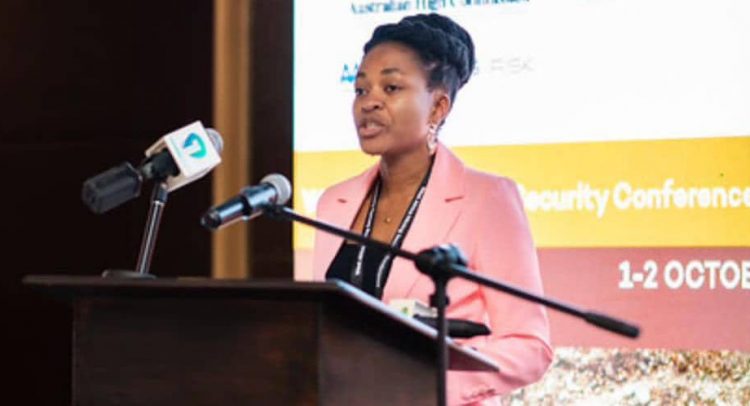Dr. Victoria Sam, the Director of Intelligence Analysis at the Ministry of National Security, has disclosed that the latest set of measures rolled out by the government will culminate in an effective and lasting solution to the illegal mining menace.
In a speech delivered at the opening ceremony of the 4th West Africa Mining Security Conference organized by the Australian High Commission in Ghana, Dr. Victoria Sam cited illegal mining (galamsey) as one of the major issues crippling the Ghanaian mining industry.
Expounding more on the menace, Dr. Victoria Sam explained that it poses significant security and economic threats to Ghana and that the government has instituted measures it believes will help deal with the canker.
She noted that the five-member inter-ministerial committee set up by the president will come up with effective strategies that will help save the country’s water bodies and forest reserves.
“One of the nation’s most critical challenges is illegal mining, or ‘galamsey,’ which poses a severe threat to the sustainability of our natural resources and the livelihoods of countless citizens. In response, the Honourable Minister for National Security is leading an ad-hoc committee, established by His Excellency President Nana Addo Dankwa Akufo-Addo, to reassess the government’s strategic approach to eradicating galamsey.”
Dr. Victoria Sam declared the openness of the government to collaborations with the diplomatic community and traditional authorities to handle the canker.
“This five-member committee is diligently working to develop more sustainable and effective measures by collaborating with local communities, traditional authorities, and industry experts. This signifies Ghana’s renewed commitment to confronting the menace, which has wreaked havoc on our environment.”
She also discussed the potential of the mining industry in the West African sub-region as an anchorage for terrorist groups and called for stakeholder collaborations in stemming the spread of terrorist activities in the sub-region.
“The Sahel remains at the forefront of these challenges, with insurgent groups targeting resource-rich areas. Mining assets and convoys transporting vital resources are prime targets. Despite the presence of security escorts, militant groups remain undeterred, posing a constant threat to mining operations.
“As terrorism spreads into littoral states, it has become evident that no country in the region is immune to these threats. Furthermore, there is significant evidence that these groups are exploring illegal mining sectors to fund their activities, even in countries where they are not yet operating openly. Ghana, in particular, is on high alert and continues to implement a range of measures to fortify its security posture against potential incursions,” she said.
On her part, Berenice Owen-Jones, the Australian High Commissioner to Ghana, restated her country’s commitment to security in the West African sub-region.
She stated that Australia appreciates West Africa’s strategic positioning as a hub for mining and will continue to collaborate with various governments and authorities to implement decisive measures against the threats of terrorism in the sub-region.
Berenice Owen-Jones stated that Australia has invested over $10 million in counter-terrorism and will not relent in its efforts to ensure the safety of the mining industry in West Africa.
“We also appreciate that West Africa is home to some of the most challenging operating environments in the world for mining companies. Africa is now recognized as the most active theatre for violent extremism.
“Across the Sahel and other West African countries, expanding terrorist groups affiliated with al-Qaeda and Islamic State undermine the prospects for new investment and threaten the lives of both foreign and local workers in the resource sector.
To address the threat, the Australian Government has invested over $10 million in counter-terrorism as well as preventing and countering violent extremism programs in Africa. We have done that through multilateral agencies and through sustainable, locally-driven efforts to counter the threat of terrorism and extremism,” she said.


